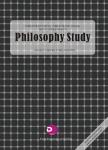Corpus, Body, and Sense in Nancy, Deleuze and Charles H. Long
Corpus, Body, and Sense in Nancy, Deleuze and Charles H. Long作者机构:University of Central Arkansas
出 版 物:《Journal of Philosophy Study》 (哲学研究(英文版))
年 卷 期:2013年第3卷第7期
页 面:627-633页
学科分类:081203[工学-计算机应用技术] 08[工学] 0835[工学-软件工程] 083303[工学-住房与社区建设规划] 0833[工学-城乡规划学] 0812[工学-计算机科学与技术(可授工学、理学学位)]
主 题:Gilles Deleuze Jean-Luc Nancy Charles H. Long biopolitics body
摘 要:This article investigates the role of the body in Jean-Luc Nancy's powerful essay Corpus, and critiques it from the standpoint of Agamben's biopolitics. For Nancy, the body becomes the privileged site of both existence and sense in a way that threatens to obscure the logic of exceptional decision that Agamben takes from Carl Schmitt. As an alternative to Nancy's understanding of the body, we can see in Deleuze a series of bodies that works in parallel to a series of sense or language, where sense and body do not get collapsed into each other. At the same time, contemporary continental philosophy resists the idealistic separation of thinking and embodiment. Deleuze calls this relation between sense and body a cut, but we could also consider a parallax, following Slavoj Zizek. Finally, African-American historian of religion Charles H. Long's work complements some of Deleuze's insights in a more explicitly postcolonial context.



